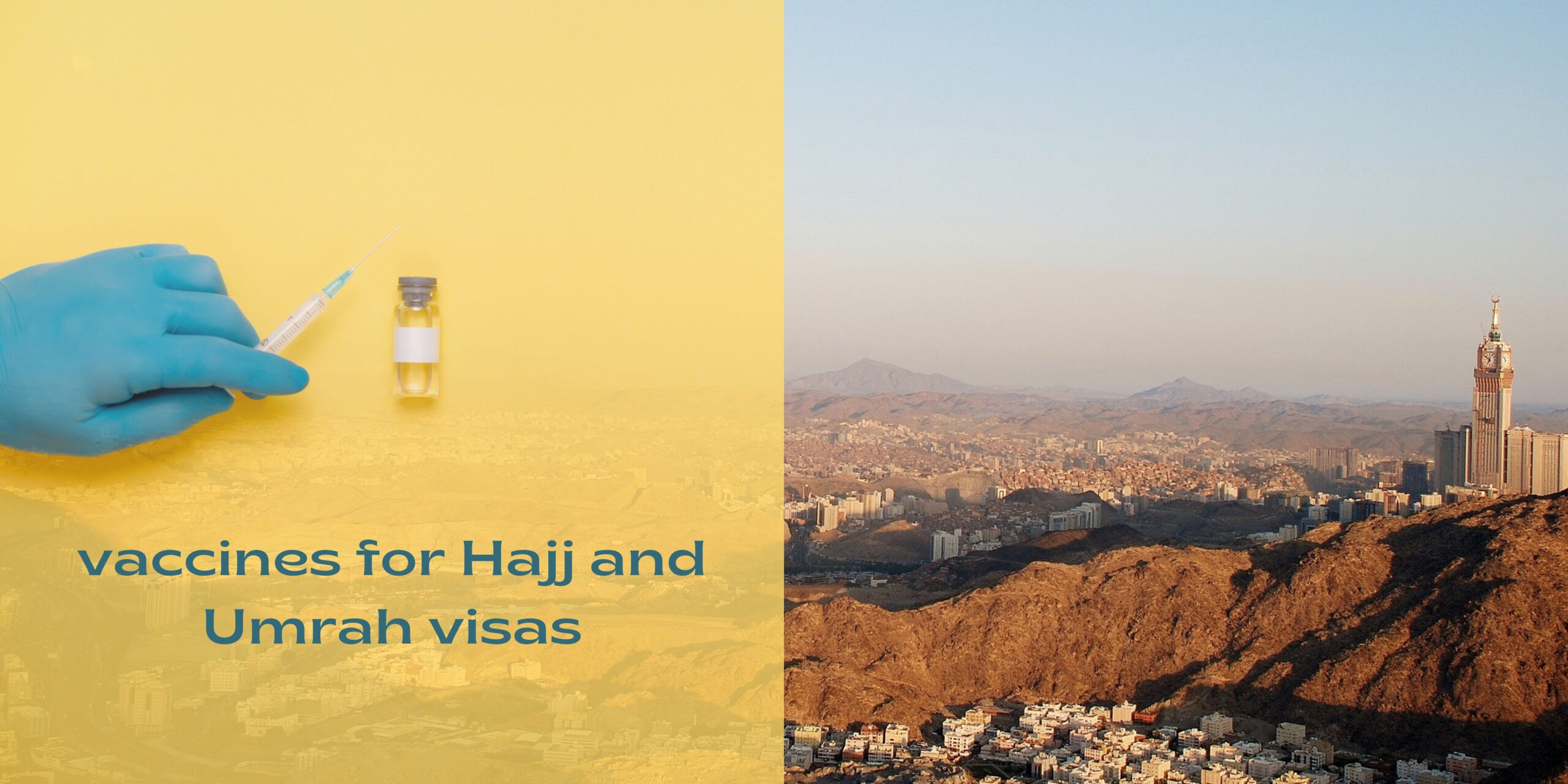In 2023, the Saudi Ministry of Health will demand several vaccines for Hajj and Umrah visas. When visiting The Kingdom, the government approved COVID-19 vaccines.
The Saudi Ministry of Health released the authorized list of COVID-19 vaccinations and the number of doses necessary for each on June 4, 2023. On April 26, 2023, the Ministry of Health announced giving the second COVID-19 booster dosage to people 50 and older after eight months.
Hajj and Umrah Vaccinations
The Ministry of Health stated that health institutions have begun administering Hajj vaccinations this year (1443/2023). This procedure ends July 3, 2023. Hajj and Umrah 2023 immunization requirements include the following:
Saudi Arabia acknowledges WHO’s 10 COVID-19 vaccinations. Unified Portal for External Hajj 2023 has vaccine information. Saudi Arabia says Covaxin, SK Bioscience (Covovax), Jansen (Jcovden), Pfizer-BioNTech (Comirnaty), Moderna (SpikeVax), AstraZeneca (Vaxzevria), Nuvaxovid (Novavax), Sinopharm, Covishield, Sinovac, and Sputnik V vaccines fulfill travel restrictions as of June 4, 2023.
The Saudi Ministry of Hajj and Umrah certified digitally that non-vaccine recipients could undertake Umrah if they are not afflicted with coronavirus or have not been in touch with SARS-CoV-2. As of March 27, 2023, Saudi Arabia will enable COVID-19-vaccinated adult women to perform the Umrah pilgrimage without a male guardian (mahram).
- Yellow Fever: All tourists traveling from countries or areas at risk of yellow fever must have a valid yellow fever vaccination certificate confirming they were vaccinated between 10 days and 10 years before arrival. In the absence of a certificate, the subject will remain under close observation for six days after immunization or the last day of potential infection exposure, whichever is earlier.
- Meningitis: Visitors traveling for Umrah, Hajj, or seasonal work must present a meningitis vaccination certificate issued no more than three years and no less than ten days before arrival. Disease transmission and huge gatherings: meningococcal infection during Hajj.
- Polio: All tourists from polio-endemic and re-established transmission nations should be vaccinated (regardless of age and vaccination status). Proof of polio vaccination six weeks before departure is necessary for tourists from polio-endemic and re-established transmission countries to apply for a Saudi Arabia visa. Travelers will also get one dose of OPV at Saudi border stations upon arrival. Travelers from recently endemic nations in danger of reimporting poliovirus must comply. All travelers under 15 will get OPV at the border, regardless of vaccination history.
- Influenza: It is highly recommended by the Saudi Ministry of Health that all international pilgrims, especially those at higher risk of severe influenza diseases like pregnant women, children under five years, the elderly, and those with underlying health conditions like HIV/AIDS, asthma or chronic heart or lung diseases, receive seasonal influenza vaccinations before they arrive in Saudi Arabia. In Saudi Arabia, vaccination against seasonal influenza is strongly advised for all Hajj pilgrims, especially those at high risk of infection, and all Hajj healthcare workers.
All pilgrims should update vaccines against vaccine-preventable diseases. These include diphtheria, tetanus, pertussis, polio, measles, and mumps. Pilgrims wishing to go to malaria-risk areas before or after Hajj or Umrah should seek guidance. Pilgrims should prevent insect bites. This prevents vector-borne infections like dengue.

